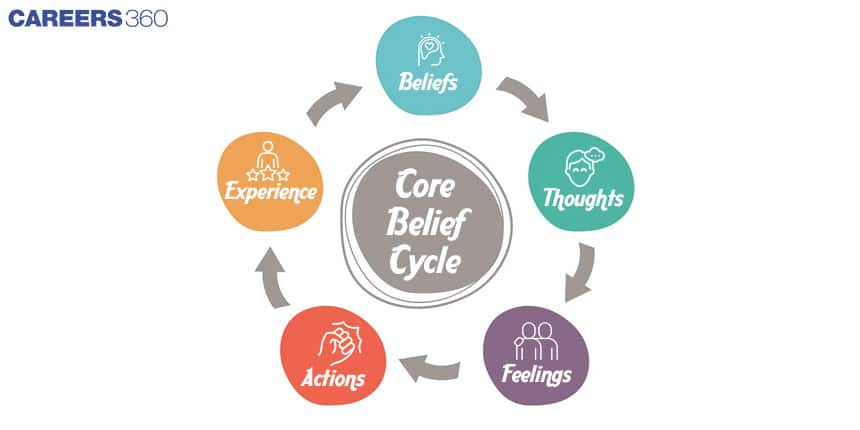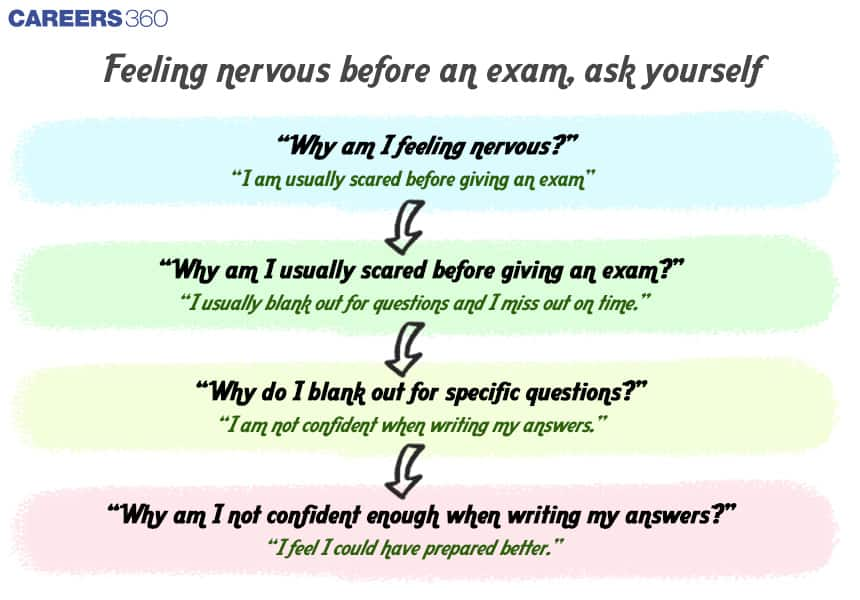Core Beliefs: What They Are, How They Manifest, Getting Rid Of Unhelpful Ones
Are there times when you remember having similar responses to certain situations? These reactions can occur in different experiences. It could occur as getting anxious or worried before an exam, you may be afraid to forget everything you studied. It could also arise when dealing with friendships; do you sometimes feel stressed or worried about telling your friends or parents how you actually feel about something? It could even occur in class, where you may be worried about looking silly in front of the class about a question you may have, so you choose to remain quiet.

If you are able to relate to this because it sounds familiar, know that these experiences are normal and can be changed. These experiences stem from the core beliefs every human being has within them. This article will focus on exploring what these core beliefs are, how they develop, manifest in life, and can be recalibrated or changed.
What Are Core Beliefs?
The psychological definition of core beliefs as stated by Dr. Sheri Jacobson is – “Core beliefs include the thoughts and assumptions we hold about ourselves, others, and the world around us. They are deep-seated beliefs which often go unrecognised and yet they constantly affect our lives.”
In simpler terms, core beliefs are ideas we have about ourselves and the world around us, that we believe to be absolutely true. These beliefs drive our thoughts, feelings, and behaviors. As a mechanism of protection, our belief systems play a vital role in our lives. Our beliefs help us make sense of the world and go through the challenges and situations we encounter. They help us create and adhere to our ‘moral ideologies’, what we believe to be right or wrong, good or bad, what we need to embrace, and what we need to stay away from.
Also Read | 8 Ways To Change Your Self-Talk For A Healthy mind
How Do They Develop?
Human existence is creation at its peak. When we are brought to life, we come as a blank canvas, with the exception of instincts such as laughing or crying to communicate. Core beliefs are learned as we go through life. Our belief systems are formed by the way our parents behave, the environment we were brought up in, the interpersonal relationships we share, and the kind of experiences we deal with. At a young age, it is natural to believe what we are being told as fact or truth because, at that time, we are not able to discern between what is true and not.
How Do Core Beliefs Manifest?
As we have seen through this article so far, our core belief systems are ideas that we learn over time, based on what we experience. Ideas, thoughts, and notions are formed about ourselves through various situations we encounter.
Let us take you through the “Core Belief Cycle”. It is the process by which these ideas and notions are formed. It will help to understand how they are created, reinforced, and brought about in our responses, reactions, and behavior.
 Our Core Belief Systems Are Ideas That We Learn Over Time About Ourselves
Our Core Belief Systems Are Ideas That We Learn Over Time About Ourselves
This recurring cycle starts with experiences that lead to the formulation of beliefs, giving rise to thoughts that align with our beliefs. Once these thoughts arise, it evokes an emotional response wherein we feel certain emotions, which in turn helps us decide what action to take for situations we face, resulting in another experience.
For example, when you give exams, even though you have studied for them as much as you could, you go into the exam hall feeling uncertain and unprepared. This could lead to unhelpful behaviours like blanking out or forgetting certain answers. If you don't get the grade you would have wanted or do well enough according to your own standards, eventually, you could start feeling as though you are not good enough. This feeling of not being good enough, if reinforced enough, has the potential of becoming a core belief.
Once an action has taken place, it brings about a new experience, which then reinforces to some degree the beliefs we already have within, and the cycle starts again.
Also Read | Why Having A Value System Is Indispensible
Do Core Beliefs Restrict Us?
While there are some core beliefs we hold that help us evolve and grow, there are some that can cause more harm than good for us. Core beliefs have the power to drive our thoughts, behaviours, and responses. The ones that restrict us, hinder our ability to deal with challenges that we are presented with. It leads to the belief that either we are not capable of handling these problems, or that there is no point because it won’t lead anywhere. However, the minute these thoughts come into our minds, we have lost half the battle.
As human beings, we have the ability to make choices, and with these choices comes the ability to persevere or run away. Restrictive core beliefs take us in the direction of avoiding the problem, challenges, and difficulties we face. If this happens, we lose an opportunity to grow and get closer to our potential. The good news is that these beliefs are learned, therefore they can be unlearned as well.
Can Core Beliefs Change?
So far, we have seen that our core beliefs are learned and have been reinforced throughout, with every experience, because they are not innate and we have the ability to transform them. It is definitely easier said than done, however, it is possible.
As human beings, we have the ability to rewire our thinking with consistent conscious effort, there are two things required at a base level to recalibrate our restrictive core beliefs, that is, awareness and willingness.
Here are some things we can do to start altering unhelpful beliefs.
Effective Questioning
There are some simple questions we can ask ourselves when faced with uncomfortable situations or challenges. The important thing to remember is we have the power and potential to change ourselves and not others.
Why do I feel this way?
On asking yourself this question, if you respond or think in a way that brings discomfort, ask yourself this again. Questioning yourself gives you a non-judgemental space to introspect and be honest about what is bothering you. Sometimes you just need to keep digging. Keep asking the question until you feel like you have reached some sort of conclusion or satisfactory answer.
When you are facing a difficulty, the trick to make this work is to ask yourself ‘why?’ multiple times. Consider the example in the diagram below.
 Remember We Have The Power And Potential To Change Ourselves And Not Others.
Remember We Have The Power And Potential To Change Ourselves And Not Others.
What if?
Usually, this question comes up in a way where the focus tends to go in a negative direction, however, make a conscious effort to ask yourself, what if this does work out? What if I can respond in a better way?
This will help bring to light a new perspective and aid in changing the direction of thoughts we may be feeling at the time. It can even work to the extent of bringing in some motivation, however, like with anything, this takes practice as well.
The potential of human beings is extensive, and this is because, unlike most other organisms, we have the power to make a choice. The moment we are conceived, we absorb whatever we are exposed to; this creates our perceptions, beliefs, thoughts, ideas, and personality.
Core beliefs are those notions that we believe to be true, even if they are not, because it is what we have learned from people we interact with, situations we are faced with, and our own understanding of ourselves. Since these beliefs are learned, we have the power to change them, especially if they prove to be unhelpful and restrictive.
Our experiences lead to beliefs, which give rise to our thoughts; it has a ripple effect that evokes emotions within us, in turn creating our responses and actions. This cycle then repeats itself and creates new experiences.
The beliefs that cause discomfort and challenges can be altered with consistent practice and conscious effort. One way to do this is to question ourselves by asking why and what if. We have the power to bring about internal transformation if we are aware and willing.
Also Read | Self-Care Tips To Feel Happy And Rejuvenated
Ichha Bhan is a counselling psychologist and personal growth coach. She holds more than 5 years of hands-on experience in working with children and adolescents, helping them and their parents navigate shared emotions, and the challenges of growing up.
